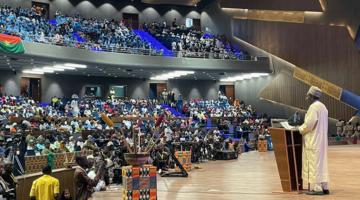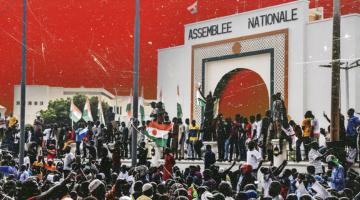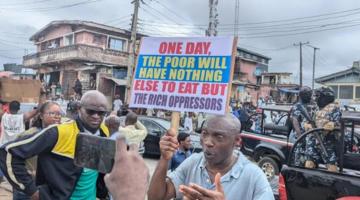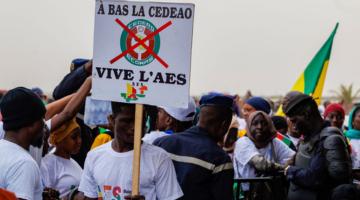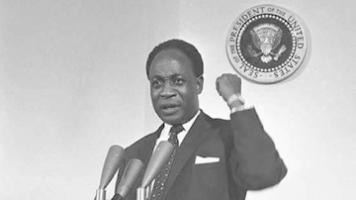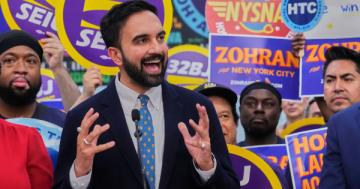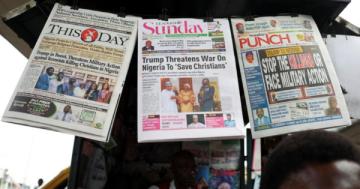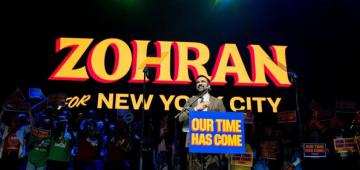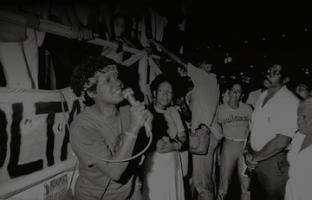Top Ten Reasons We Don’t Know About CLR James
Few African Americans interested in radical traditions are familiar with C.L.R. James. Many are exposed to Black Studies or Africana Studies yet never hear mention of his name. Perhaps this is because James tends to minimize dread, anxiety, victimization, and meditations on the search for identity in favor of crisp political proposals for what to do and how to do it. Conventional teachers, where they know about James, tend to reserve him for after insurgent flashes of the spirit have arrived. But this is also because they wish to bewilder before and after these moments of danger. James, it is often suggested, is an apostle of mass movements, and while these have conflicting tendencies, it is sectarian to clash over precise political philosophy. Yet James made it clear that those who preach the downfall of civilization and tell us this are “playing with revolution.” It is really a remarkable idea, not often expressed today, that some can talk “radical” and still be playing with revolution.
CLR James, the Pan African and independent socialist, is best known as the author of The Black Jacobins, the classic history of the Haitian Revolution. Many know him as a mentor and colleague of anticolonial thinkers and postcolonial statesmen like Ghana’s Kwame Nkrumah and Trinidad’s Eric Williams. If some understand this Black radical was a major figure in the Leon Trotsky movement, both in Britain and the United States, few understand his developing criticism of both Stalinism and Trotskyism, and how the creative foundations of his own autonomous political vision came to unfold. Both about the socialist future and the fight against racism and colonialism. James is sometimes dismissed as a paradoxical Pan African with embarrassing Eurocentric blind spots whether because of his Marxism or because of his affinity for Western classics. But that is because historical knowledge of James’s actual politics, his critical approach to racism and empire in many global locations, is little understood as strategies and tactics.
James is a pillar of the Black radical tradition but he reminded us that we don’t understand the tradition of anti-colonial talent unless we understand the antagonisms and debates within the tradition. James’s role in shaping these debates is often minimized, and on this basis we really are unfamiliar with the creative foundations of his most radical politics. That is because many of his precepts are irreconcilable with most conceptions of Black radicalism, Black Nationalism, and Black Marxism though he is said to be an important figure that informs all of these.
James illustrated to his audiences that many in the name of socialism have made a contribution to writing radical history or poetics, to building labor movements, and waging national liberation struggles. But we really know something when we comprehend the differences between C.L.R. James and Eric Williams in how they saw the writing of history and the building of party politics; James’s debates with George Padmore and Richard Wright in how they saw the prospects of an American revolution and the problems of Stalinism; how James and Kwame Nkrumah saw political economy differently; how James saw Black internationalism in World War II and the Cold War differently than Paul Robeson, W.E.B Du Bois, William Patterson, and Claudia Jones; how James and Angela Davis critique the state differently.
Most of us do not know the antagonisms or debates within the Black radical tradition. Studying James more closely can help us learn about them.
Here are ten reasons we do not know CLR James’s political thought like we should.
-
CLR James envisioned the foundation of the socialist future as direct democracy and workers’ self-management. Most Black radicals believe socialism is embodied by a one party state or welfare state and its state planning. James insisted everyday people could directly govern through workplace councils and popular assemblies. They could take responsibility for economic planning, judicial affairs, foreign relations, education, and all cultural matters. He believed this was so because the idea that “every cook can govern” already has partially happened in historical social revolutions and has been expressed instinctively in classical literature and popular culture.
-
James believed there was no dual or progressive character of government bureaucracy. The nation-state could neither guarantee world peace, economic security, or colonial independence. A vanguard party, whether socialist or black, was not needed but the cultivation of the self-mobilization of ordinary people was required. There was still a role for a radical political cadre. It should propagate the destruction of hierarchy so ordinary people could better arrive on its own authority. James made it clear that professionals should be abolished as the embodiment of culture and government. He felt that while industrial workers, regardless of color, did not have a special consciousness, the ability to control electrical power, telecommunications, ports and docks, trade and industrial production, meant toilers could take over a city or country and govern. This was a conception of mass democracy (majority rule), that can take the form of a general strike, far beyond electoral politics (minority rule) which he felt was a form of degradation. In order to have democracy, James insisted, you have to oppose the minority who wishes to rule above society.
-
James saw that where governments seized wealth, and made it nationalized or public property, this was not inherently progressive but could become a repressive form where ordinary working people were not encouraged to take over and manage these institutions themselves as a process of directly governing society. James felt most forms of socialism were “state capitalist” and this could be a repressive force against independent labor whether in a colonial freedom movement or a socialist revolution. The evidence of this could be found in historical socialist revolutions and national liberation struggles in Russia, China, Cuba, Ghana, Tanzania, Guyana, Jamaica, and Trinidad. James rejected the idea that a degenerate state or deformed society could be the holding place for social revolution. He was particularly critical of “socialist” societies that feared the independent initiative of ordinary people and was constantly reminding the population that their freedoms would not be taken away – this exposed the low esteem that people actually held the rulers above society.
-
James argued it was a mistake for socialist movements not to respect the autonomy of Black freedom and anticolonial movements, and how they could democratize the mentality of, and be a stimulant, for socialist workers. He did not see socialist workers as only white workers and theorized this perspective on Black autonomy as the proper perspective of a multi-racial revolutionary radical internationalist organization, though some Black Nationalist organizations and white members of the New Left saw his ideas about Black autonomy subsequently as a critique of the authority of the Anglo-American Left that minimized the importance of race and reduces all matters to issues of social class and capitalism.
-
James felt that African Americans, as a numerical minority in the U.S., compared to African and Caribbean people, are at an extreme disadvantage. Having known the violence of slavery, Jim Crow, and modern police murder, Black people historically have shown themselves to be quite adaptable to any circumstances of labor and education. In their search for civil rights or black power they have found they have to oppose bankers, oil millionaires, executives of government, the false logic of newspapers, colleges, churches etc. So many Black leaders have been jailed or killed that and so credible Black politics necessarily must start off with taking social revolution seriously. But most middle class oriented civil rights organizations cannot do that. So they have to pretend. The condition of Black people in the U.S. is such that those who don’t even pretend are subject to being degraded and violence by white racists. James was clear what this does not mean. Where Black humanity must be defended it does not mean any form of Black politics is legitimate. James is not an advocate of any narrow conception of Black self-determination but is trying to expand and deepen understanding of what Black self-reliance might look like. He is trying to aid in the next development of African American politics beyond cheap ethnic patronage or affirmative action toward an enlarged concept of citizenship and the designing of a new society.
-
James saw the social structure of the United States is such that it is impossible to change the cities or the economic conditions of the working class without changing the condition of Black people, and that Black people in order to emancipate themselves must change the life of cities and the terms of labor. Social change instinctively happens from below society. Today what W.E.B. Du Bois called the “Talented Tenth,” the Black elite and professionals, James argued now are the great reactionaries. They are the ones out to get what they can by managing others’ lives but are not concerned with the great mass of the population. Black Power today means nothing without power to the common people, James insisted in many global locations, whether in the cities as workers or unemployed or the African and Caribbean farmers. Even where Black people are already in charge above society, power must be taken away from them so Black people below society can arrive on their own authority.
-
There is a need to build Black institutions in the Black community. But James felt this can bewilder us if we are not clear what this means. A Black institution, for James, is an organization which unites Black people around a particular program and policy with the aim of emancipating Black people. But what should not be done is build an institution or organization, like the NAACP, that requires a life of its own independent of the quality of the policy or politics being carried out. Most organizations and institutions with a noble purpose decline or are coopted eventually. James believed the NAACP began splendidly to the extent it clarified with statistics and public education the true nature of lynching, where it contributed to the break-up of the legal domination of the Jim Crow South, and when it regularly published the journal Crisis, edited by W.E.B. Du Bois. But today, James felt, it is an institution loyal to bourgeois society. It is an organization for the advancement for only certain people and has no right to exist just because it is a Black institution. Today, James explains, the NAACP or any Black institution or organization that helps justify the norms of the U.S. society must be opposed by Black radicals and radical anti-racists. James was clear people who may have been heroic in a previous period cannot be held in permanent regard for past service especially when they are disrupting present rebellious instincts.
-
James rejected the idea that the condition of Blacks in the U.S. was that of “an internal colony.” Though, James understood, there are many aspects of American racism that are similar to what takes place in a colony in Africa or the Caribbean. But Black people are the overwhelming majority in colonial settings fighting a minority political and military power. In the U.S. you are not a colony when you are fighting in the center of an imperial power. Black people in a colony have to fight against few hundred whites. In the U.S. the odds against Blacks are tremendous. The whites in former colonies often left after defeated in battle; in the U.S. the whites who oppress Blacks are not going anywhere.
-
James argued Black Nationalism can be a confusing concept in the U.S. that causes misunderstanding. He felt the idea that Blacks could form a nation within another nation was without sense. It cannot be done. But where Blacks wish unity for their national interests, their first class citizenship rights, and the cultural arguments that militantly defend this, that is perfectly legitimate and must be supported. “Black Power” was not a reverse racism but was seeking to clarify the next development in Black political thought as it opposed police brutality and the Klu Klux Klan. But when you call it Black Nationalism, argued James, Blacks cannot fight for nationhood in the social circumstances for which they find themselves in the U.S. James did believe that the questioning of the cultural terms of who is qualified for full citizenship rights, asserting equal protection under the law, and challenges to uncritical assimilation or integration into the dominant white racist order often associated with Black Nationalism was crucial. In this manner James saw Black Power or Black autonomy and what is termed social integration as reconcilable where many historical debates find them permanently in tension.
-
James explained a Pan African movement is valuable where it is an anti-imperialist movement and where it can make itself materially strong in the U.S. and the Caribbean for solidarity with Africa. Cultural and theoretical discussions about Africa can be valuable but what is especially needed is to tell the imperialist governments and the fascist colonizers what we want and what we will do if demands are not met. Far more than international law and the United Nations, independent labor (like dock and maritime workers) have a tremendous role to play in sanctioning imperial governments by disrupting their trade practices in response to racism and colonialism. Pan Africanism in the African Diaspora must remember that it can be a stimulus and offer tremendous help, but Africans on the continent will take the necessary steps to emancipate themselves. Pan Africanists abroad can raise ideas about what Africa means in world history and the philosophy of culture but James reminded they can no longer think, as they did in the past, that they will be in the forefront of African liberation.
James, a Caribbean immigrant sojourner who lived 25 years in the U.S. both during the Age of the CIO and during the Black Power movements, was once asked to clarify tensions between African Americans and Caribbean 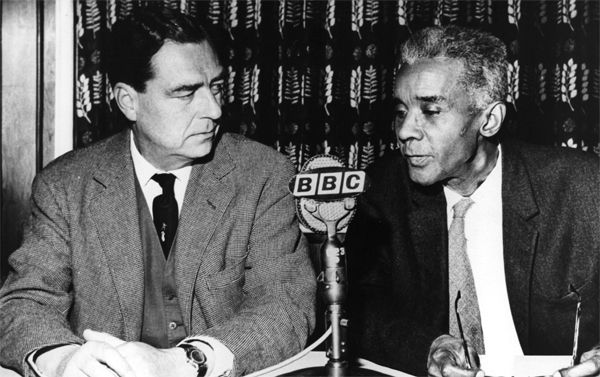 Americans. He reminded that African Americans are not suffering in the U.S. because of anything Caribbean people have done. Further, Caribbean people are not burdened in the U.S. because of what African Americans are doing. Without a common objective to unify around they will continue to stumble over each other and individuals will find ways to divide them. But it must never be forgotten that Marcus Garvey, George Padmore, Cyril Briggs, Richard B Moore, Hubert Harrison, Claudia Jones, and Stokley Carmichael (Kwame Ture) – despite their disagreements with C.L.R. James -- all came from the Caribbean and were major voices of Black power, Black autonomy, the redemption of Black identity, or defense of the life and struggles of Black toilers in the U.S. They were not concerned with conflicts between African Americans and Caribbean Americans but fought against the common oppressor of both. When we fight against the problems both have encountered the disputes between them decline.
Americans. He reminded that African Americans are not suffering in the U.S. because of anything Caribbean people have done. Further, Caribbean people are not burdened in the U.S. because of what African Americans are doing. Without a common objective to unify around they will continue to stumble over each other and individuals will find ways to divide them. But it must never be forgotten that Marcus Garvey, George Padmore, Cyril Briggs, Richard B Moore, Hubert Harrison, Claudia Jones, and Stokley Carmichael (Kwame Ture) – despite their disagreements with C.L.R. James -- all came from the Caribbean and were major voices of Black power, Black autonomy, the redemption of Black identity, or defense of the life and struggles of Black toilers in the U.S. They were not concerned with conflicts between African Americans and Caribbean Americans but fought against the common oppressor of both. When we fight against the problems both have encountered the disputes between them decline.
After considering all this we might reflect on James’s small revolutionary organizations that grew out of the Johnson-Forest Tendency of American Trotskyism (1940-1970), that included Raya Dunayevskaya, James Boggs, Grace Lee Boggs, Martin Glaberman, and Selma James, and which grew to have a distinctive left libertarian, romantic, spontaneous, and autonomous vision of the socialist future marked by direct democracy and workers’ self-management.
But also James’s efforts with small Pan African organizations whether with George Padmore in pursuit of Ethiopia solidarity in the 1930s or those that worked toward the Sixth Pan African Congress in Tanzania in 1974. James ultimately boycotted the latter because African and Caribbean governments (many thought progressive for a time, like Forbes Burnham’s Guyana, Michael Manley’s Jamaica, and Julius Nyerere’s Tanzania) collaborated to block African and Caribbean radical activist delegates from attending.
James’s Pan African and independent socialist activism had something crucially in common.
James believed the experience of Black autonomy and the search for colonial freedom, women’s autonomy, the autonomy of youth and GLBTQ people, like workers’ self-emancipation had something to teach him about his own search for self-government even as he strived to clarify and cultivate the popular will as a political philosopher.
Part of cultivating the popular will was learning to organize radical political education that condemned oppressive institutions and pointed out mistakes ordinary people place in their own path, do agitation journalism to stir up discontent, and propaganda work offering profound visions of the new society. The voices of everyday people, their insights, instincts, and creative genius, were always found in any publications written or edited by James.
What is often misread as James’s unbridled optimism about the creative capacities of ordinary people to directly govern, was a product of a collectivist approach to community organizing that listened to the voices of revolt at all points of economic and social reproduction. He did not listen to and affirm just anything everyday people had to say. But wished to draw out and highlight the popular elementary drive to govern and solve difficult problems as distinct from any tendency to capitulate to oppressive socialization. How many “radical” thinkers never seem to place the tasks of government in the hands of those who are oppressed so they can break their own chains and rule?
Each autonomous voice of oppressed peoples was recognized and recorded by James, not to guilt each other about the blind spots of what others could not see or know, or to justify separation from each other. Neither did he facilitate gathering this knowledge to foster equal opportunity to enter the rules of hierarchy or use what we know about historical oppression to legitimate the management of others’ lives below us.
Rather, For James, the search for autonomy of each sector of humanity was to inform a greater vision of popular self-management that all could share in and learn from. Autonomy and solidarity can be misunderstood unless yhey mean a struggle for clarity and influence against hierarchy and domination. Many speak of these lives and those lives mattering, and can talk about decentralized leadership and opposing respectability for a time, but cannot convey they wish every cook to govern – a major thread of C.L.R. James’s audacity. How many radical democrats don’t wish to obstruct a minority ruling above society? Many thwart insurgency and find a way to reconcile with the old party politics and fatefully embrace the state and capitalism despite offering social and cultural criticism to public audiences.
It might seem odd that even as he came to reject the idea of the Leninist vanguard party, James, as Pan African and independent socialist, would remind organizational forms are necessary which consistently oppose racism, patriarchy, empire, and capitalism and propagate the destruction of hierarchy and domination. But the fact is most social movement organizations, even radical ones, do not historically and consistently do so.
James’s grasp of the history of the French, Russian, and Haitian Revolutions made it clear that movements for total liberation may begin against aristocratic, conservative, and fascist forces. But ultimately they come in contact with progressive forces, who can be authoritarian, elitist, and undemocratic in unforeseen ways. James reminded that progressives can be the comedians of the modern political world and on the side of the permanent slaughter – he said this as early as 1937 and kept saying so all his life. It is perhaps that CLR James that many who wield the Black radical tradition and Marxism as critical frameworks don’t want you to know about.
Matthew Quest is a scholar of the legacies of C.L.R. James. See his essay on James and the history of the Haitian Revolution in The Black Jacobins Reader.


